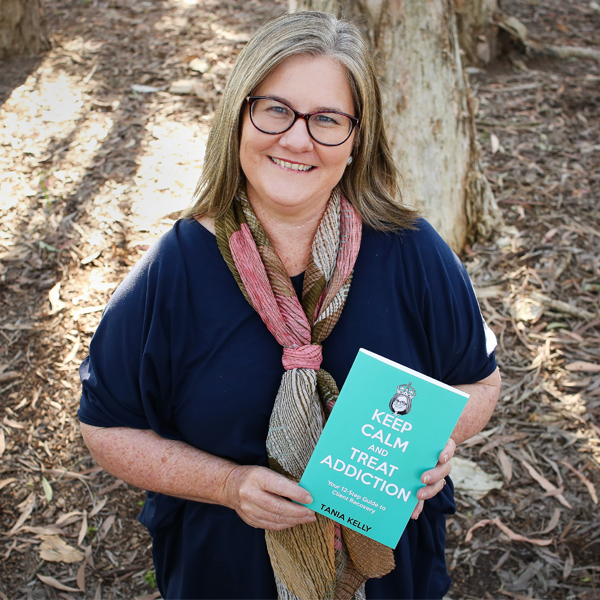Selective serotonin reuptake inhibitors or SSRIs are medications that are used for the treatment of major depressive disorder. SSRIs along with other types of antidepressant drugs are also effective in treating generalized anxiety disorder and panic disorder. In 2019, around 1.2 million prescriptions of SSRI drugs were issued in the United States, and the most common SSRI drug prescribed is Sertraline, with a prevalence rate of 30.2%. Looking at these statistics, patients must understand what truly is a selective serotonin reuptake inhibitor.
Table Of Contents:
In this article, information about SSRI vs SNRI comparison, the mechanism of action of an SSRI antidepressant and its off-label uses, SSRI side effects, contraindications and warnings, the foods and drugs that interact with SSRI medications, SSRI withdrawal, symptoms of withdrawal, and whether SSRI addiction is possible will be provided.
More About Antidepressants:
What Are SSRIs?
SSRI medications are the most commonly prescribed antidepressants in the United States. Standing for selective serotonin reuptake inhibitors, these popular antidepressants are favored due to their lower risk of side effects compared to other depression drug classes. Consistent with the study of a medical doctor from the USA, SSRI medications are well-tolerated and cause less addiction than tricyclic antidepressants or TCAs and monoamine oxidase inhibitors or MAOIs.
Most doctors will first turn to these depression medications before considering others unless there is a strong reason for them to try another class. Selective serotonin reuptake inhibitors first gained FDA approval in the late 1980s. Decades later, numerous drugs in the class have been approved. There are more different SSRIs on the market than there are in any of the other depression drug classes.
The List of SSRIs With FDA Approval Is as Follows:
- Citalopram
- Escitalopram
- Fluoxetine
- Paroxetine
- Sertraline
- Vilazodone
- Fluvoxamine
Although Sertraline is the most commonly prescribed selective serotonin reuptake inhibitor in 2019, it is worth mentioning that Citalopram is the best-tolerated in clinical trials as it does not cause sexual impairments and produce less addiction compared to the other drugs. However, a medical doctor will decide what selective serotonin reuptake inhibitor or antidepressant will be used depending on the health condition of the patient.
SSRI vs SNRI: What Is The Difference?
SSRI medications affect the neurotransmitter serotonin, and aside from this drug class, there is also another drug class called serotonin-norepinephrine reuptake inhibitors or SNRI. Also called modern antidepressants, these drugs affect both the serotonin and norepinephrine neurotransmitters. In SSRI vs SNRI, the former generally affects the mood while the latter, aside from mood, affects the sleep, attention, and memory of the patients.
Furthermore, about SSRI vs SNRI side effects, according to a clinical review from The Psychiatric Clinics of North America, both of these drug classes are associated with serious side effects. However, SNRI drugs can induce more nausea, insomnia, dry mouth, and a rare elevation in blood pressure.

How Do SSRI Antidepressants Work?
When taking a medication that affects the chemistry of the brain, it is natural to want to know how the drug works. However, how an antidepressant works in general, is not fully understood. Most researchers within the field believe that SSRIs’ mechanism of action comes down to their interaction with the presynaptic cell. Based on a study of healthcare professionals from the United States, SSRIs prevent the presynaptic cell from reabsorbing serotonin. As a result, there is more serotonin, a known feel-good chemical, left in the brain, making it easy for it to bind to the postsynaptic receptor. This is what gives SSRIs their name. Remember, when there is reuptake, there will be lesser serotonin that will pass messages to nerve cells, leading to depression.
Depending on the antidepressant being taken, it may have effects on other monoamine transporters. Pure selective serotonin reuptake inhibitors have minimal effect on norepinephrine and dopamine transporters, but combination medications may target them. As cited in a study of medical doctors from Oxford, depending on the medication and the person taking it, the most popular SSRI withdrawal symptoms take at least six weeks to start working. On the other hand, some SSRI drugs take as long as two months.
FDA Approved And Off-Label Uses Of SSRIs
The main use of an SSRI antidepressant is for the treatment of depression. This is the condition the medicines were developed to alleviate, and they are often prescribed for major depressive disorder, as well as mild to moderate depression. While there is debate over their effectiveness in treating mild to moderate depression, the fact remains they are prescribed for this. However, depression treatment may soon be eclipsed by its use in the treatment of anxiety. The use of Sertraline antidepressants for anxiety is steadily rising and is currently the second most common application of the drugs. In a clinical review published in the American Family Physician, there are also numerous off-label uses of drugs.
While not officially approved for these applications, their use is supported by limited research. These applications include:
- Obsessive-compulsive disorder
- Panic disorder
- Debilitating phobias
- Bulimia
- Post-traumatic stress disorder
- Premature ejaculation
- Premenstrual dysphoric disorder
- Fibromyalgia
- Irritable bowel syndrome
- Hot flashes
- Nerve pain
Many of these applications require long-term use of antidepressants, which can be problematic in some cases. Patients should research their options before agreeing to extended treatment with these medications. Before using any medication, including different types of natural antidepressants, always consult with a doctor.
SSRI Side Effects
What is the prevalence of SSRI side effects? Researchers from Virginia report that 266 out of 700 people using selective serotonin reuptake inhibitors experienced side effects. The common side effects include SSRIs weight gain, sexual dysfunction, and sleepiness. Furthermore, 25% of these side effects are considered bothersome. In this section, the short-term and long-term side effects of SSRI drugs will be discussed.
Short-Term SSRI Side Effects
As said, SSRI side effects are known to be less than those caused by other types of depression medications. Based on a study, the side effects of SSRIs are determined by how long the drugs were used. For short-term use, around 7-28 days, SSRIs may cause gastrointestinal bleeding. The other short-term effects of Sertraline antidepressants include:
- Drowsiness
- Dry mouth
- Nervousness, agitation, or restlessness
- Dizziness
- Headache
- Blurred vision
- Rash
- Blurred vision
- Agitation or nervousness
- Pain in the joints or muscles
- Upset stomach, nausea, or diarrhea
- Brain zaps SSRI
Since SSRI medications can affect the gastrointestinal system, those with GI disorders are advised to take these drugs carefully. A medical doctor will evaluate a patient’s profile if it is safe for the patient to take the drugs. Furthermore, if any of these side effects become severe, seek medical help as soon as possible to avoid other health dangers.
To prevent the occurrence of SSRI withdrawal symptoms, tapering off the drug is needed. Keep in mind that a medical doctor is the only one who can give the patient the correct dose-tapering.
Long-Term Side Effects of SSRIs
Aside from the short-term side effects, long-term adverse reactions can also be seen in patients using SSRI medications. Aside from addiction, a medical doctor from the University of Utah reports that these effects can be troublesome in the case of long-term selective serotonin reuptake inhibitor therapy. In this section, the long-term sexual dysfunction, weight gain, and sleep disturbance effects of selective serotonin reuptake inhibitors will be elaborated on.
Sexual Dysfunction
Based on a clinical review published in the Journal of Clinical Psychopharmacology, the rate of sexual dysfunction side effects in the SSRI drugs postmarketing clinical trials is 75%. The most common sexual dysfunctions include orgasmic delay, anorgasmia, and decreased libido. Furthermore, it was also reported that these side effects are more common in males than females. For men, priapism or painful erection can be experienced. Lastly, these side effects are most common when the drug Paroxetine is used.
Weight gain
The weight gain effect of SSRIs is due to the long-term use of the drug. In a study published in the Psychiatric Annals, during the first use of the drug, weight loss can be observed. However, after 6 months, weight gain will already be visible. Additionally, different drugs from this class have mean weight gains. For Sertraline, Fluoxetine, and Paroxetine, the mean weight gains are 15lbs, 21lbs, and 24lbs, respectively.
Sleep disturbance
Usually, depressed patients may experience altered sleep. They get more awakenings and their duration of sleep is short. In a clinical trial from Pennsylvania, SSRI drugs like Fluoxetine and Paroxetine can worsen the sleep pattern of depressed patients. They delay the onset of sleep and reduce sleep efficacy. On the other hand, compared to the two, the drug Sertraline only affects the sleep pattern minimally.
To sum it up, the most common long-term side effects of antidepressants are those associated with sexual dysfunction. Users can look into how to increase libido while on antidepressants to counteract this problem. Also, SSRIs are known to be antidepressants that don’t cause weight gain, though this can vary between patients. Ultimately, users cannot know what side effects they will experience until they begin taking the medication.
Food And Drug SSRIs Interactions
SSRI medications have numerous food and drug interactions. Thus, users need to be honest with their doctor about all medications, drugs, and other substances they are taking, including over-the-counter medications and supplements to avoid health dangers. The most concerning result of an interaction is serotonin syndrome, a fatal reaction when St. John’s Wort and SSRIs are combined. However, many lesser interactions can be dangerous on their own.
Medications and Substances That Can Interact With SSRIs Include:
- Alcohol – Combining SSRI drugs like Celexa with alcohol can cause increased CNS sedation. Medical doctors are advised to be vigilant on their patients who are vulnerable to alcohol use disorder.
- Benzodiazepines – Combining Benzodiazepines and SSRIs like Fluoxetine can cause increased sedation. Also, this interaction can reduce the metabolism of Benzodiazepines.
- Warfarin – This Warfarin-SSRIs interaction can increase prothrombin time and bleeding risk. Any sign of bleeding must be reported as soon as possible
- Buspirone – Mixing Buspar with a selective serotonin reuptake inhibitor can cause serotonin syndrome. Medical doctors are advised to monitor the concurrent use of these medications.
- Antiepileptics – Taking antiepileptics like Pregabalin and an SSRI drug can reduce the seizure threshold.
- NSAIDs – Taking NSAIDs like Naproxen together with SSRIs can increase the risk of bleeding. Those with GI disorders are advised to not take these two without the supervision of a medical doctor.
- MAOIs – Taking monoamine oxidase inhibitors like Phenelzine together with SSRI drugs can cause hypertensive crises and serotonin syndrome.
- TCAs – Mixing SSRIs with tricyclic antidepressants like Amitriptyline can increase the serum concentration of the latter. The risk of serotonin syndrome can also be increased.
Users should keep in mind that this is not a complete list, and new interactions may be discovered at any time. Anyone taking these depression medications must speak openly with their doctor about all substances they are using. Additionally, all street drugs should be avoided. Antidepressants and marijuana are not a good mix, nor should they be used with harder drugs. As said, mixing alcohol and antidepressants is risky and likewise should be avoided.

Contraindications And Warnings
Although SSRIs provide fewer side effects and are more tolerable and produce fewer addiction effects, not everyone is a good candidate for treatment with these medications. There are some contraindications when it comes to these drugs. Some of these include:
- Those who have bipolar disorder and are currently in a mania period because these drugs cause brain zaps SSRI
- Anyone with a bleeding disorder
- People with diabetes, both type 1 and type 2
- Individuals with epilepsy
- Those with narrow-angle glaucoma
- Anyone with kidney, heart, or liver problems
There is concern over using an antidepressant while breastfeeding or pregnant. With SSRIs, doctors sometimes feel they are safe enough. However, mothers should be informed about the dangers. Pharmacologists from Europe report that taking SSRIs while pregnant or lactating can cause:
- Premature birth
- Decreased weight of the baby
- Intrauterine growth retardation
- Neonatal adaptation syndrome
- Persistent pulmonary hypertension
Furthermore, stopping antidepressant drugs cold turkey can also increase the risk of suicidal thoughts and tendencies occurring. It is always better to find professional treatment for substance abuse to speed up the recovery process as well as minimize health risks.
SSRI Withdrawal: What Are The Symptoms?
Substance withdrawal symptoms are possible with selective serotonin reuptake inhibitors. In a clinical investigation of psychiatrists from Italy, 26 out of 97 people may experience SSRI withdrawal syndrome upon discontinuation of the drug. Additionally, with SSRIs, withdrawal and rebound phenomena may occur. In another study from Indiana, the average SSRI withdrawal incidence is 46%.
Some of the SSRI Withdrawal Symptoms Include:
- Flu-like symptoms
- Insomnia
- Nausea
- Imbalance
- Sensory disturbances
- Hyperarousal
- Dizziness
- Diarrhea
- Muscle spasms
- Tremors
- Agitation
How long will these antidepressant withdrawal symptoms last? Psychiatrists from Canada report that these SSRI withdrawal symptoms will resolve within 13 weeks, and this is a long period. Moreover, this dose-tapering is of great help for SSRI abuse and antidepressants overdose. So what happens when someone overdose on antidepressants? Overdosing on antidepressants poses health hazards as well as endangers one’s life.
SSRI Addiction And Its Treatment
While SSRI medications can greatly help those who take them, they are not without their health risks. There is always a possibility to become addicted to SSRIs. As cited in a study of medical doctors from New York, SSRI abuse, misuse, and dependence can all lead to SSRI addiction. As with all antidepressants, including different types of atypical antidepressants, SSRI addiction can manifest physically and psychologically. People often cannot understand why they become addicted to their selective serotonin reuptake inhibitors. However, the fact is that long-term use almost always results in some sort of SSRI abuse and addiction. The point here is that with the right tapering schedule, patients can overcome SSRI addiction.
Whether someone feels addiction, or just wants to stop antidepressant addiction and get rid of withdrawal symptoms safely, drug rehab centers offer the right treatment for stopping SSRIs. It is possible to move away from medication use while still living a good life even during this time of the Covid-19 pandemic. In these resources, there are healthcare workers who can help the people wean off these medications professionally. There would be treatment stages and formulation of relapse prevention plans for a more successful recovery.
Hope Without Commitment
Find the best treatment options. Call our free and confidential helpline
Most private insurances accepted
Page Sources
- Black, K., Shea, C., Dursun, S., & Kutcher, S. (2000). Selective serotonin reuptake inhibitor discontinuation syndrome: proposed diagnostic criteria. Journal of Psychiatry and Neuroscience, 25(3), 255.
- Bogetto, F., Bellino, S., Revello, R. B., & Patria, L. (2002). Discontinuation syndrome in dysthymic patients treated with selective serotonin reuptake inhibitors. CNS drugs, 16(4), 273-283.
- Carvalho, A. F., Sharma, M. S., Brunoni, A. R., Vieta, E., & Fava, G. A. (2016). The safety, tolerability and risks associated with the use of newer generation antidepressant drugs: a critical review of the literature. Psychotherapy and psychosomatics, 85(5), 270-288.
- Cascade, E., Kalali, A. H., & Kennedy, S. H. (2009). Real-world data on SSRI antidepressant side effects. Psychiatry (Edgmont), 6(2), 16.
- Dubovicky, M., Belovicova, K., Csatlosova, K., & Bogi, E. (2017). Risks of using SSRI/SNRI antidepressants during pregnancy and lactation. Interdisciplinary toxicology, 10(1), 30.
- Edinoff, A. N., Akuly, H. A., Hanna, T. A., Ochoa, C. O., Patti, S. J., Ghaffar, Y. A., ... & Kaye, A. M. (2021). Selective serotonin reuptake inhibitors and adverse effects: a narrative review. Neurology International, 13(3), 387-401.
- Evans, E. A., & Sullivan, M. A. (2014). Abuse and misuse of antidepressants. Substance abuse and rehabilitation, 5, 107.
- Harmer, C. J., Duman, R. S., & Cowen, P. J. (2017). How do antidepressants work? New perspectives for refining future treatment approaches. The Lancet Psychiatry, 4(5), 409-418.
- Hirschfeld, R. M. (1999). Efficacy of SSRIs and newer antidepressants in severe depression: comparison with TCAs. The Journal of clinical psychiatry, 60(5), 6242.
- Jindal, R. D., Friedman, E. S., Berman, S. R., Fasiczka, A. L., Howland, R. H., & Thase, M. E. (2003). Effects of sertraline on sleep architecture in patients with depression. Journal of clinical psychopharmacology, 23(6), 540-548.
- Kane, S. P. P. (2019). SSRI Antidepressants - Drug Usage Statistics, ClinCalc DrugStats Database. ClinCalc. https://clincalc.com/DrugStats/TC/SSRIAntidepressants
- Rosenbaum, J. F., Fava, M., Hoog, S. L., Ascroft, R. C., & Krebs, W. B. (1998). Selective serotonin reuptake inhibitor discontinuation syndrome: a randomized clinical trial. Biological psychiatry, 44(2), 77-87.
- Sussman, N., & Ginsberg, D. (1998). Rethinking side effects of the selective serotonin reuptake inhibitors: sexual dysfunction and weight gain. Psychiatric Annals, 28(2), 89-97.
- Stewart, J. W., McGrath, P. J., Rabkin, J. G., & Quitkin, F. M. (1993). Atypical depression: a valid clinical entity?. Psychiatric Clinics of North America.
- Stone, K. J., Viera, A. J., & Parman, C. L. (2003). Off-label applications for SSRIs. American Family Physician, 68(3), 498-504.

 Authored by
Authored by  Reviewed by
Reviewed by 

